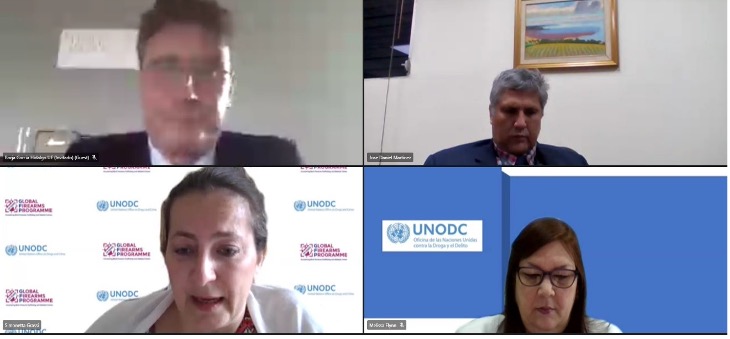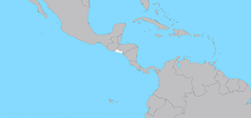
UNODC Global Firearms Programme Virtual training on investigation and prosecution of firearms trafficking and related offences for El Salvador
From 26 to 29 July 2021, in the framework of the project “Countering transnational illicit arms trafficking through the implementation of the United Nations Convention Against Transnational Organized Crime and its Firearms Protocol”, the UNODC Global Firearms Programme delivered a virtual training to El Salvador facilitated by experts from both UNODC and national institutions. It focused on providing participants with a better understanding of topics such as the international, regional and national legal framework on firearms; firearms identification and tracing; international judicial and law enforcement cooperation, as well as inter-institutional cooperation at the national level, and investigation techniques. Participants also worked together to conduct a practical exercise involving a simulated real case of firearms trafficking.
The project “Countering transnational illicit arms trafficking through the implementation of the United Nations Convention Against Transnational Organized Crime and its Firearms Protocol” has as its overall objective to prevent and counter the illicit manufacturing of and trafficking in firearms, and their links to transnational organised crime and terrorism, through the ratification and implementation of the Protocol against the Illicit Manufacturing of and Trafficking in Firearms, their parts and Components and Ammunition, supplementing the United Nations Convention Against Transnational Organized Crime (UNTOC). The project is implemented by the Global Firearms Programme (GFP), established by the first project funded by the European Union (EU) (IFS /2010 /259-204), which builds upon five interconnected pillars, including: (1) adequate policy and legislative frameworks, (2) implementation of comprehensive firearms control and regulatory frameworks, (3) effective criminal justice responses to illicit trafficking and related crimes, (4) broad international cooperation and regular exchanges of information and expertise through communities of practitioners, and (5) enhanced knowledge and intelligence on firearms trafficking to monitor illicit trafficking flows.









